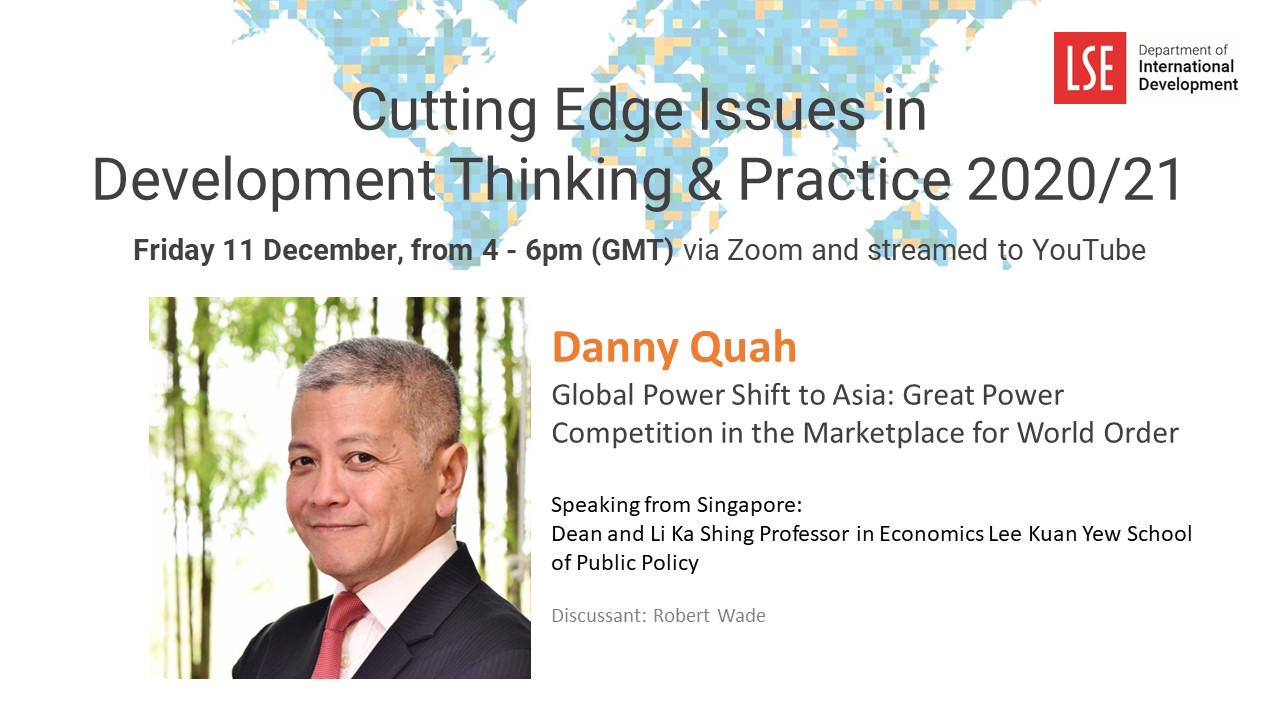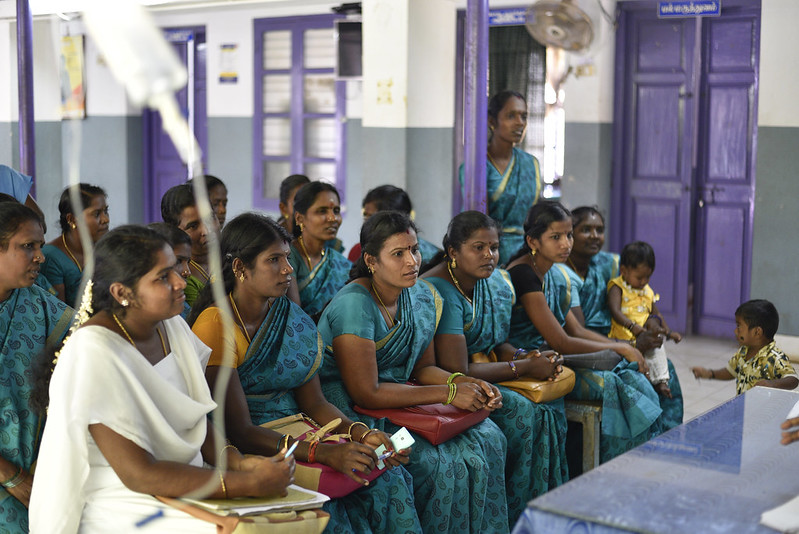Research Project Manager at the French Institute for Research in Africa (IFRA) and MSc Development Management alum, Youssef Bouri looks at how the three leading candidates in the upcoming Nigerian presidential campaign of 2023 take into account energetic and environmental issues in their manifestos.
On 25 of February Nigerians will be called to the polls to elect their new president. Nigeria is Africa’s biggest economy, most populated country, and a major crude oil exporter on the continent with proven crude oil reserves of 37050 million barrels and proven natural gas reserves of 5848 billion metric cubes. While Nigeria is a relatively low emitter on the global scale with CO2 emissions in metric tons per capita 24,5 times lower than the US and 8.7 lower than the UK, it is the third emitter of greenhouse gases on the African continent after South-Africa and Egypt. The Nigerian economy is heavily dependent on fossil fuels which constituted more than 85% of its exports in 2020 and the choices made by the future head of state will necessarily have a determining impact on the trajectory followed by the country in terms of energy and environmental policies. In this context, it is opportune to analyze the policy propositions of the three leading candidates on these matters. December polls indicate that the three leading candidates are Bola Ahmed Tinubu of the All-Progressive Congress (APC), Atiku Abubakar of the People’s Democratic Party (PDP) and Peter Obi of the Labour Party. This piece focuses mainly on the proposition formulated by candidates in their manifestos.
All three candidates want to terminate the fuel subsidy. Removing it would improve the Nigerian government’s revenue dramatically and disincentivize the use of fuel for everyday activities. According to the Finance Minister Zainab Ahmed, Nigeria could spend up to 6.72 trillion naira on the fuel subsidy in 2023 if it remains in place. However, phasing out the fuel subsidy would bring dire social consequences in the absence of currently available alternatives at the national level. Besides vehicle users, over 40% of Nigerians spend 14 billion USD per year on fuel to power generators that serve as a palliative for the unreliable national electricity provision system. A permanent increase in fuel prices would make fuel unaffordable to numerous Nigerians living on the extreme poverty line. In 2023, around 90 million of Nigerians live in extreme poverty.
The candidates all wish to develop the Nigerian gas sector, but they insist on different priorities. Obi insists on national needs and wants to develop “gas assets to provide power for our nation”. Atiku globally considers that “the oil and gas sector will continue to play a critical role in Nigeria’s economic growth and development”. While Tinubu puts an emphasis on export perspectives and notes that in the context of the Russo-Ukrainian conflicts “many nations are looking for alternative sources of natural gas. Wise policy requires that Nigeria seek to expand gas exports to the EU”.
The APC and PDP candidates also want to develop coal mining. Atiku wants to “make Nigeria a global mining destination” while Tinubu pledged to revive coal mining in Enugu State and wishes to produce “clean coal”. Using this euphemism does not wash the fact that, however clean, when you burn a piece of coal you produce carbon dioxide contributing to global warming. carbon dioxide contributing to global warming.
Misleading buzzwords are also used by Peter Obi who wants to leverage the potentials of the “blue economy” which he defines as “the sustainable use of ocean resources for economic growth, improved livelihoods and jobs while preserving the health of ocean ecosystems”. However, Peter Obi includes “seabed extractive activities” in the blue economy. His views seem close to those of Tinubu that want to stimulate investment toward Nigeria’s “deep-water assets”. Claims of sustainability and prioritising ocean health are undermined by the fact that deep-sea mining necessarily has detrimental effects on marine ecosystems. Halfar and Fujita (2007) note that removing portions of the ocean floor will cause disruptions in the benthic layer, an increase in the toxicity of the water column, and sediment plumes from the tailings.
Renewable energies also found a spot in the candidate’s programme. However, it must be noted that solar and wind power often figure in enumerations of renewable energies that need to be developed in Nigeria but are rarely evoked in concrete projects. Peter Obi provides a notable exception and develops a concrete solar energy project in his manifesto. He also mentions the development of nuclear power generation in Nigeria, stating that since the nineties “Nigeria, with technical support and backing from China, has been working on its nuclear energy project”. Atiku also mentions nuclear energy, but succinctly, as an elusive potential future. However, as noted by experts in a panel organized by the Heinrich-Böll-Stiftung foundation in Abuja, nuclear energy is currently not a viable option to address Nigeria’s energy challenges due to infrastructural, financial, safety and environmental challenges.
All candidates promised to reduce gas flaring associated with oil extraction but the environment-related promises in their manifestos are generally vague. Obi and Tinubu propose few environmental measures. While Tinubu proposes to complete the Great Green Wall to mitigate the effects of desertification and deforestation, Peter Obi proposes to establish a “Green Army” with an unprecise role. The only candidate to make ambitious and concrete proposals to mitigate and adapt to the impacts of climate change in his manifesto is Atiku, who devotes an entire section of his programme to climate change including roadmaps to address oil related pollution in the Niger Delta, reforms in local governance to limit urban pollution as well as sensitization campaigns.
Despite the recent devastating climate-change related flooding, affecting thirty-four of thirty-six Nigerian states between October and November 2022, killing 600 people and forcing 1.5 million Nigerians to evacuate their homes, climate-related issues were practically absent from the candidates’ campaigns. It is not entirely surprising given the competing concerns that needs to be urgently dealt with such as insecurity and extreme poverty. A large proportion of Nigerians are unaware of the impact of climate-change on their livelihoods. An Afrobarometer survey conducted in 2022 noted that 30% of Nigerians had heard of Climate Change and that within this group 66% believed that climate change was making life worse. While Nigerian’s climate-change-related knowledge is low, there are reasons to be optimistic as Nigerian celebrities diffuse climate and environmental knowledge. Burna Boy, a national and international star, recently released a short documentary highlighting the sanitary and social impacts of environmental pollution and climatic events affecting his hometown, Port Harcourt., Port Harcourt. Raising awareness on climate-related issues is essential in order to gain political traction on these issues.
The views expressed in this post are those of the author and in no way reflect those of the International Development LSE blog or the London School of Economics and Political Science.
Main image credit: ecomnewsafrique.com.






1 Comments